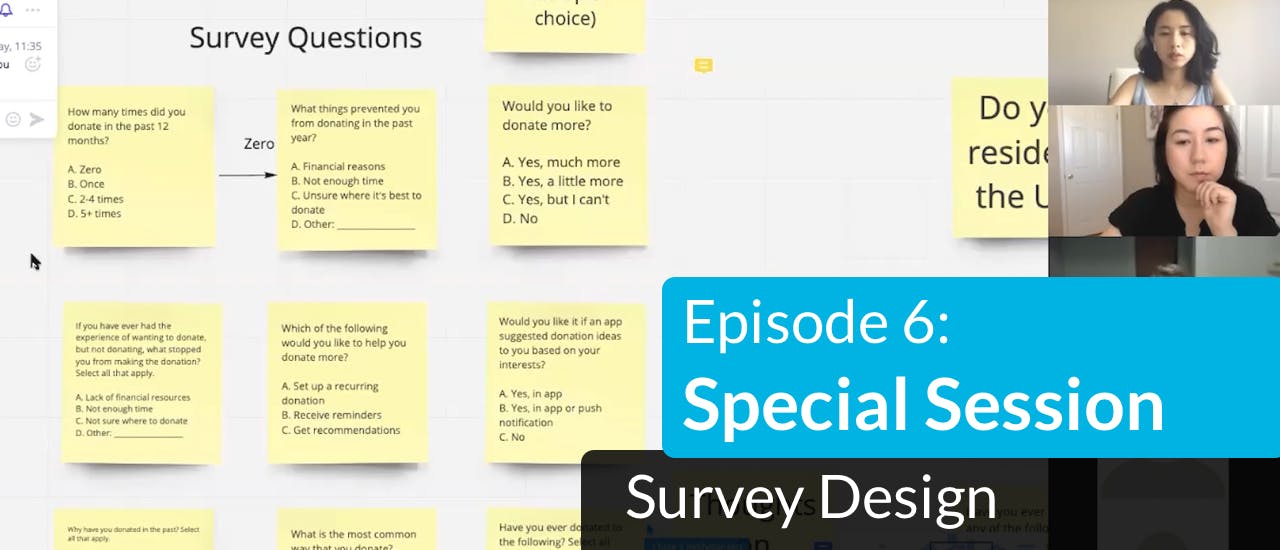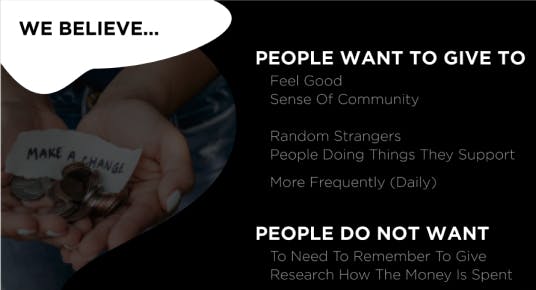With the COVID-19 pandemic having caused a mess of students’ Summer ‘20 internships, I wanted to develop a course that would give these Master’s students a real-life project for their experience and portfolio. As a member of the faculty at The University of Texas’s School of Information, I was able to assemble an excellent team of UX Researchers and Designers eager to take on a full life-cycle project. Over the course of a summer we completed 7 Agile Sprints, recorded the entire thing, and made it available for free via YouTube! While developing the course, I had a chat with the team at Sentier, as I knew they had several concepts that had come out of their SentierLabs incubator program. One of the early ideas they had was around an application that focused on making it easier to perform generous acts of giving during COVID-19. In particular, giving anonymously and to strangers which required more functionality than PayPal and Venmo. One scenario they came up with involved making an anonymous donation to a nurse in your apartment complex, working extra hours due to the pandemic, that you did not know personally.
With this gentle nudge, the second-year Master’s students begun a full lifecycle UX project from generative research, concept design, evaluative research, and ending with hi-fidelity mockups. The course was setup to deliver a real-life experience, so we followed the Agile Sprint methodology over 14 weeks, consisting of 7 Sprints with Kickoff, Check-In, and Presentation meetings held weekly.


